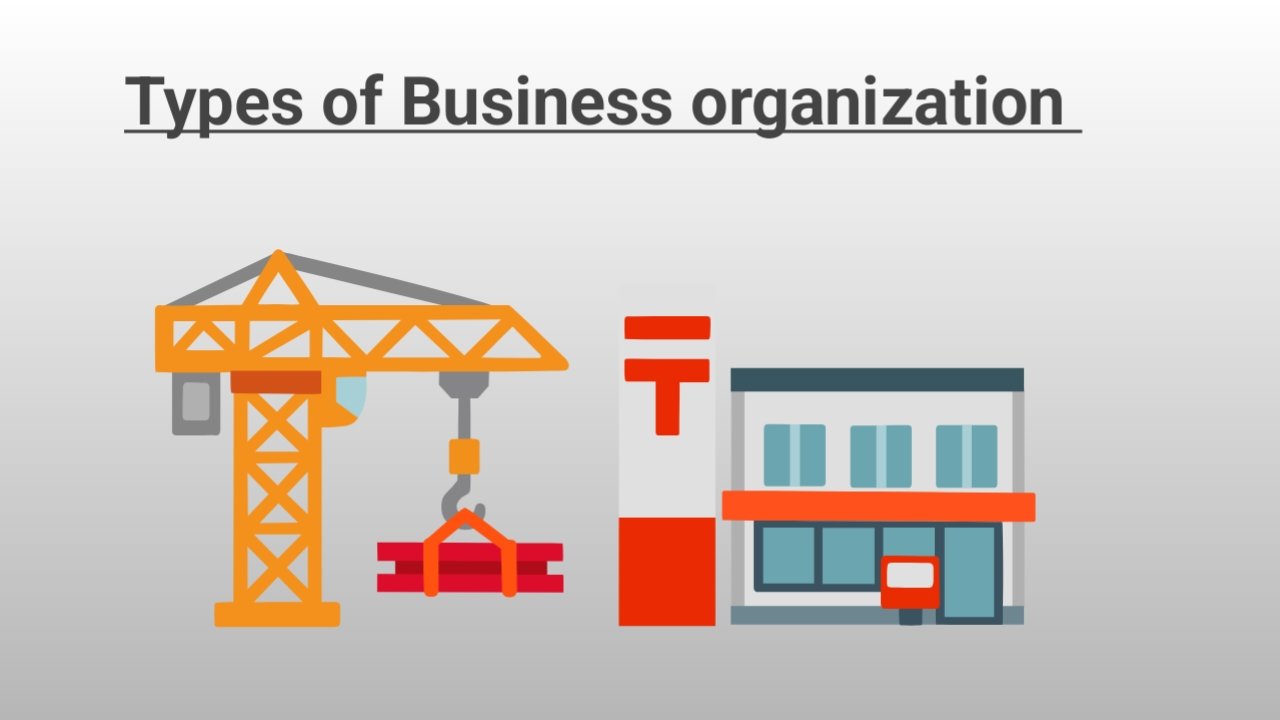Types of Business, 7 types of Business Organization are Sole proprietorship, HUF, Private, Public, cooperative, partnership, etc.
Collective group of people coming together to earn profit is organization. And firm of Business organization is ongoing activity, the collective people comes together to form it.
There are seven types of Business Organization are as following given below:-
- HUF Hindu undivided family
- Sole proprietorship
- Single handedly person(kind of president of company)
- Company
- Coming together of people for a common object.
- Partnership
- People coming together to represent each other.
- Statutory Bodies
- Evolves by any act/tribunals.
- Cooperative societies
- Shade leadership- where people are together.
- Limited liability partnership.
- A feature of a company when any features is mentioned in partnership it is known as LLP.
- It’s combination of company and a partnership.
- Case: GPA TSR Research Pvt. Ltd versus KBSN associates.
Characteristics / salient features of company, Types of Business
- Incorporated association
- Separte legal entity
- Artificial person
- Limited liability
- Separate property
- Transferability of shares
- Perpetual sucession
- Common seal
- Right to sue
Before we going through salient features of company we have first go through the definition of company.
As per company act 2013 section 2(20), company means a company Incorporated under this act or under any previous company law.
There are mainly 2 types of company one is Government and other is private company.
Government company section 2(45) company act 2013
According to section 2(45) Government company means, any company in which not less than 51% of paid up share Capital is held by Central Govt.
Or any State Government or Governments or partly by Central Govt. and partly by one or more state governments. It includes a company which is a subsidiary Company of such a government company.
Private company section 2(68) company act 2013
Private company according to section 2(68) of this company act 2013. The private company means a company having a minimum paid up share Capital as may be prescribed. And which by its Articles,
- Restrict thr right to transfer it share s.
- Except in case of 1 person company, limits the number of its members to 200.
- Prohibits any invitation to the public tk subscribe for any securities of the company.
Incorporated Association, Types of Business
A company must be incorporated under the companies Act 2013, minimum number of members required is 7 in public and 2 in private company. Public Company 2(71) member minimum 7 to unlimited. Private company 2(68) minimum members 2 to 200.
Public Company section 2(71) company act 2013
Section 2(71) of company act, public company means a company which-:
- (a) Which is not a private company and,
- (b) Public Company which has minimum paid up share Capital as may be prescribed.
Separate legal entity, Types of Business
Lord Mac naughten said, company is alt law, a different person all together from the subscribers.
Solomon versus Solomon & company Ltd. 1895 separate entity
A leather business stared by Solomon and need 7 person having $1 share price. He get his family members as a members and he become secured creditor and other are being unsecured creditors.
The house of Lords held that, company is different from the members who form it and their liability is restricted to the extent of unpaid value of shares if any. Even if he is the founder or the company is a one man company.
Lee vs Lee and company separate legal entity case company law
Facts: 2900 shares on the name of lee and he was the pilot. The plane was crash and he died, wife claims for the compensation.
It was held that lee is a separate person from the company and the compensation is to be paid to widow.
Artificial person, company salient features
Company is separate legal entity and it exist only in contemplation of law, that company is artificial person.
Limited liability of company
- Company is limited by its share liability.
- It is limited by guarantee
- The company has unlimited liability it is defined in section 3A of this Act, members severally liable in certain cases.
- Example: A only pay the amount of ₹100. ₹ 10000 will be given to company by the members. A have to pay all the liability of company at the time of liquidation.
Separte property of company
Case: Macaura versus Northern Assurance company Ltd. 1925. The court observed no share holder has any right to any item of property owned b y the company for he has no legal interest there in.
Transferability of shares by company
Section 44 of this act nature of share or debenture. The shares or debenture or other interest of any member in a company shall be movable property transferable in the manner provided by the article of company.
Perpetual succession of company, Types of Business
Perpetual means ongoing, being distinct from the members the death insolvency or retirement of its members leaves company affected.
Common seal of company, Types of Business
It States in section 22 of this act company may under its common seal through general or special power of attorney empower any person to execute deeds on its behalf.
Right to sue company salient features
Company have the right to sue and may be sued. Company is artificial entity and have involves several rights therefore it can be Sued and be sued against it.

